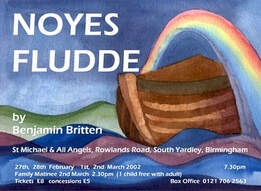 In relation to the whole climate crisis debate and response I am quite surprised how muted any response has been from the Christian community. Not that nothing has been said, but that it has been said quietly. And yes, there was a Christian presence amongst the climate protesters on the streets in 2019, but given the church’s presence in every community around the country ….! The growth of the eco-church movement is good to see, but here again the vital matters around climate change are, more often than not, low down the ‘agenda’ considering. Perhaps more important than joining the campaigning on the basis of science and other empirical evidence is the whole matter of faith. After all, there is everything blasphemous in only looking at the situation on the basis of ‘humanity has messed up, humanity is able to put it right’. Not unnaturally, when confronted with news of unprecedented floods around the world my mind turns to the story of Noah. Earthquakes, wind and fire turn my attention to Elijah on Mount Horeb. The Chester Mystery Plays, which date back to the early 15th century, include the story of Noah and the flood. This was used as the basis for Noyes Fludde, an opera by Benjamin Britten which I helped to produce in Birmingham in 2002. The story is relevant for both times. One of the comical features is Mrs Noah along with her ‘Gossips’ who are the naysayers, the Donald Trump characters, who deny that disaster is coming. However, the key message is found in the Ark and the rainbow, evidence of God’s desire for the renewal and continuation of his creation and his promise that never again will he destroy all life. It is likely that we will jump on the rainbow promise to reassure ourselves that the disaster, which we can see coming, will not happen. In doing so we too easily overlook the simple fact that in our current situation it is not God who is wreaking destruction but our own selfish actions. The rainbow promise holds and we can be assured, not that we can mess up as we like without negative result, but that God’s love for his creation continues undiminished. There is no need for God to repeat the act of judgement because we have the experience of Noah as a judgment for our actions today. We also have this story of salvation and new beginnings and God’s living Word in Jesus, so a similar act of judgement should be unnecessary!! It may be helpful too to take heed of Elijah’s experience (1 Kings 18) who found himself up Mount Horeb seeking God’s direction for his life, as he faced considerable opposition from some influential people. Sat in a cave he experienced earthquake, wind and fire but realised that in none of these did God speak, but rather in the silence that followed. For our own part we perhaps need to allow ourselves to be moved more by the evidence of God’s love - the rainbow promise, that so often comes quietly, than by the 'bangs and the crashes' of nature. We may then find a responding love and care for God’s creation and all who are part of it rather than a devotion to self-preservation. Noah was the instrument of God's salvation witnessed in the rainbow. Jesus is God's salvation witnessed in the Cross and a faith that resurrection is his promised love for eternity. We too may be instruments of God's salvation for a world ravaged by flood, earthquake, wind and fire, but faith needs to be put into practice! 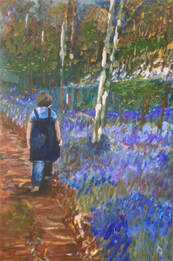 A walk in Austy Wood at bluebell time, or the park, the countryside, the national park, the seaside. A holiday to view far-flung wonders, a safari, a mountain climb, a scuba dive. We watch David Attenborough, Countryfile, Spring Watch, Gardeners’ World There are so many ways in which we sample the world of nature. We appreciate it, have concern for it, care for it, rejoice in it. At times we enter into it, becoming part in an active way. We manage our garden, we tend plants and grow vegetables or fruit. In our appreciation and concern, through a sense of care, it becomes a cause which we support. A local conservation project gains our interest, we donate to the World Wildlife Fund, we re-cycle bits of paper and plastics, we grow flowers for the bees, build an insect ‘hotel’, feed the birds and the hedgehog. However, a question remains over the depth and intimacy of our relationship with the world of creation and how often we ‘pass through’ it. Especially for urban dwellers there is a strong element of the ‘optional’ about the relationship with nature. The countryside and our gardens are our ‘pleasure grounds’. Birds, badgers, climate change, green belt very easily become causes or projects, carrying the sense that they are ours, when we want them. The beauty and wellbeing of nature is very much a peripheral to everyday life. For those involved in farming or any way of life whose focus is outdoors, contending with nature, working with it and in it, things are rather different but it could become ’the workplace’, with a relationship that can become detached. Humanity and the world of nature have, from every perspective, become distanced and far from the unified creation of God’s making. The creation accounts offered in the book of Genesis make quite clear the fact that humanity, along with every other aspect of creation small or large, belong together as parts of God’s creation. Jesus puts above all other things a love for God and our neighbours as ourselves. The unified relationship of God’s design goes further - There is a real sense that our attitude towards the world of nature reflects clearly our attitude towards God, the Creator, and our neighbours with whom we share in its care. A love for self does not give any room for a selfish, optional care for all around us. If our relationship with God is intimate enough surely we should not be able to ‘pass through’ the natural world around us without feeling a sense of belonging and a heavy ‘duty of care’ - and this not only for those who are closer neighbours, but also for residents of the Pacific Islands or the Amazon Rainforests. I find that amongst my collection of images there are quite a number which depict 'conversation'. It is always interesting to surmise what the conversation is about, but also to realise that conversation is perhaps the simplest and most common way in which we share ourselves with other people.
Is it the family gathering where conversation can be the most personal and often around familiar topics, events, relationships and people known.? Is it a sharing of information or knowledge or a point of view? Is it a casual encounter with the usual topics of the weather and one another's health? Is it a negotiation of business or opinion? Is it a shared decision-making over a meal menu or something of greater significance? The list could go on because conversations cover the whole spectrum of human life. In it all we share something of ourselves - who we are and how we are. Conversation is usually the starting point for, and the ongoing foundation of, relationships. It is of great importance in our lives and yet is often not treated as such. More often than not we treat it very casually - either not giving much thought to what we say, or allowing a set pattern to shape things, depending on who we are talking to. Then, of course, we must remember that conversation is as much about listening as speaking! How often are our minds focussed on what it is that we wish to say, to such an extent that we do not really listen to the other person, or we don't let them get a word in edgeways! All this sounds pretty 'normal' and therefore 'acceptable', apart from the fact that the conversation we are so bad at is central to our relationships. Is it any wonder that these break down so easily, or exist in a rather fragile form? The 'conversations' that take place in the House of Commons probably mark the lowest standard, as clearly there is not much listening and the emphasis is very much on 'telling'. Questions carry an important role in conversation, as they can lead the exchange into new areas and invite the contribution of others, but Question Time in Parliament never seems to be this positive. It seems that we have a lot of ground to make up if our society is to be renewed, yet it can begin with the simplicity of good conversations. So to in the realms of faith, conversation or 'prayer' is a foundation for the relationship we have with God. We can believe and we might go as far as to say that we 'trust' God, but without the conversation the relationship remains rather impersonal. It is conversation/prayer that gives us opportunity to share ourselves to the fullest extent - and equally, enables God to get close to us and share what is at his heart. Conversation - sharing self, listening and allowing times of silence, so that these are given the space they need - a central art for our human relationships that needs some practice! |
Archives
March 2024
|
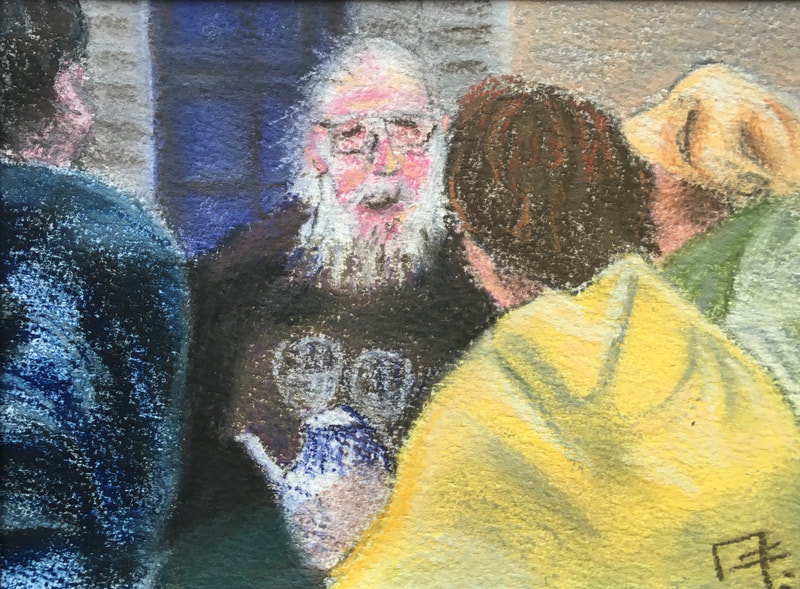
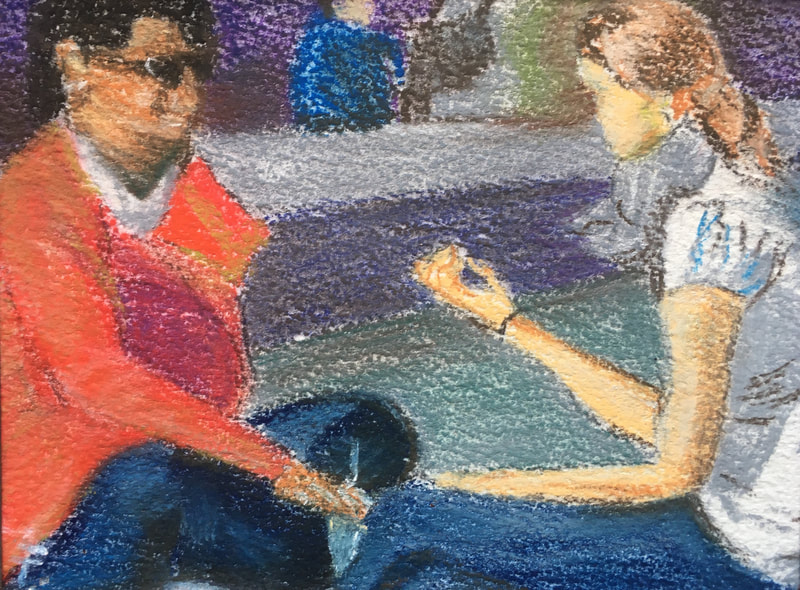
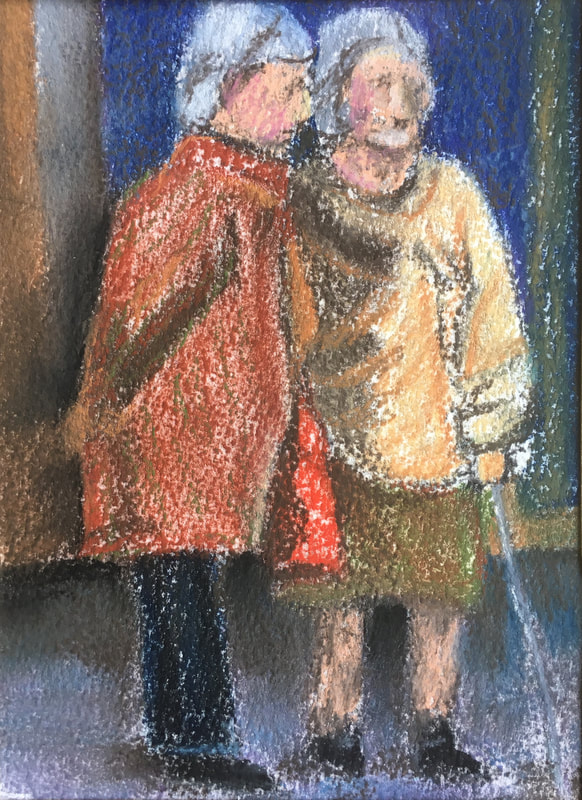

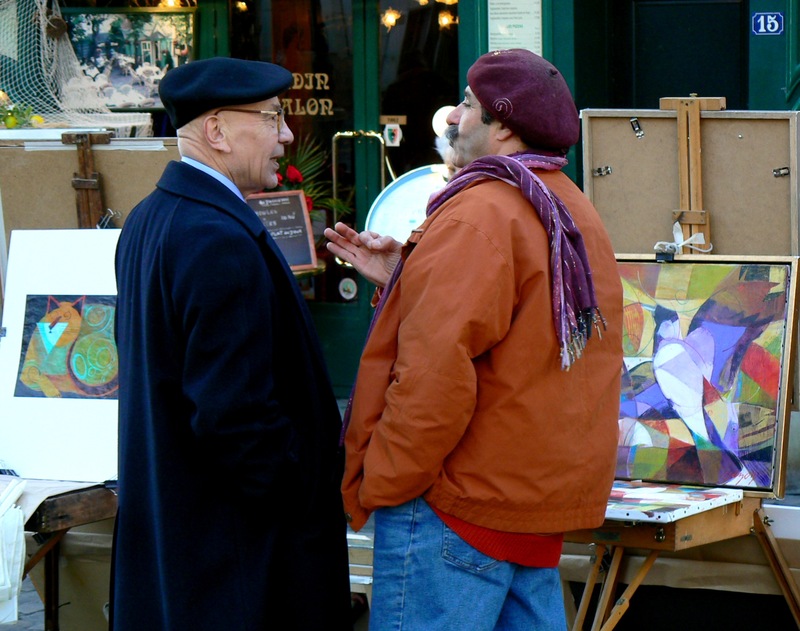
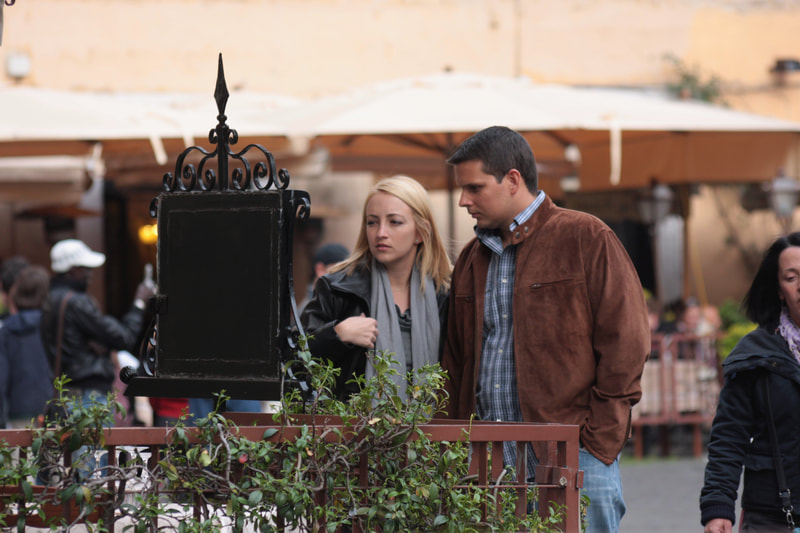
 RSS Feed
RSS Feed
